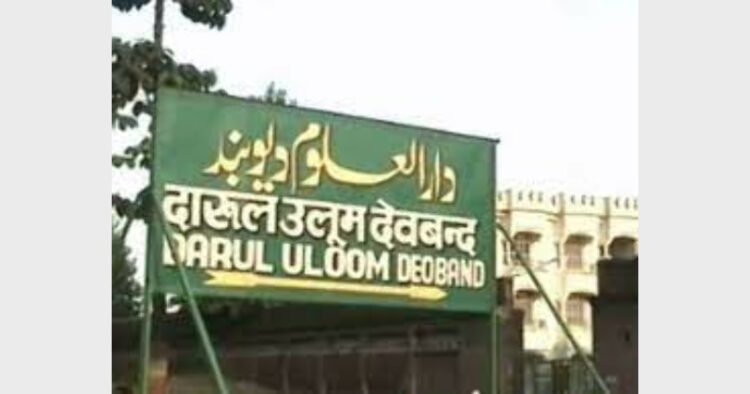NCPCR notes that such statements of Darul Uloom are misleading, provide an incorrect position of law to people and is in nature of abetment which would entice people to commit an offence.
New Delhi [India], January 16 (ANI): National Commission for Protection of Child Rights (NCPCR) on Sunday wrote to the District Magistrate of Saharanpur district of Uttar Pradesh urging to take action against Darul Uloom Deoband for allegedly issuing unlawful, misleading fatwas regarding children on their website and asked him to submit an action-taken report within ten days.
"The Commission is in receipt of a complaint against Darul Uloom Deoband's website and unlawful and misleading fatwas being issued by them. The complainant has provided a list of fatwas which are available on their website and has stated that these fatwas being issued are unlawful and against the provisions provided by Law," reads the commission's letter.
The commission notes that in one of their fatwas, Darul Uloom Deoband states that though adopting a child is not unlawful, the ruling of 'real child' will not be applicable on him, and it shall be necessary to observe Shariah Purdah from him after he is mature. It also said that the fatwa denies the adopted child a share in the property and his right to be an heir in any case.
"It is pertinent to mention here that such fatwas are not only misleading to the Law of the land but are also illegal in nature. The Constitution of India provides for fundamental rights of children including right to education and right to equality. Further, the Hague Convention on Adoption, to which India is a signatory, states that adopted children would enjoy the same rights as biological children.
The Juvenile Justice Act, 2015 in Section 2(2) defines adoption as the process through which the adopted child is permanently separated from his biological parents and becomes the lawful child of his adoptive parents with all the rights, privileges and responsibilities that are attached to a biological child. Therefore, any child who is adopted by prospective adoptive parents enjoys the same rights and privileges as that of a biological child which includes succession rights," added NCPCR in the letter.
The commission pointed out that the website feature similar fatwas pertaining to school syllabus, college uniforms, education in 'un-Islamic' atmosphere, higher madrassa education for girls, corporal punishment and in response to its queries, it is observed that the rights of the children are blatantly disregarded.
"For instance, in one of the replies, it is said that teachers beating children is allowed however, corporal punishment in schools is prohibited under the RTE Act, 2009," added the letter.
NCPCR notes that such statements of Darul Uloom are misleading, provide an incorrect position of law to people and is in nature of abetment which would entice people to commit an offence. The commission also notes that such information can deny children of rights conferred in the Indian Constitution under Articles 14, 15 and 21.
"Besides it may also lead to violation of Section 75 of the Juvenile Justice Act, 2015 for cruelty against children that states that whoever is having the actual charge of, or control over, a child, assaults, abandons, abuses, exposes or wilfully neglects the child or causes or procures the child to be assaulted, abandoned, abused, exposed or neglected in a manner likely to cause such child unnecessary mental or physical suffering shall be punishable. It may be noted that the Juvenile Justice Act is a secular Act and provide opportunities to adopt children without discrimination of religion, caste, creed," the commission added.
The NCPCR urged the District Magistrate that such contents in the website of Darul Uloom Deoband be thoroughly examined, investigated and removed.
"Further, access to such website may be prevented until the removal of such content for avoiding spread and recurrence of unlawful statements and consequently preventing incidents of violence, abuse, neglect, harassment, discrimination against children. Also, action may be taken for violating provisions of Constitution of India, Indian Penal Code, Juvenile Justice Act, 2015 and Right to Education Act, 2009," it added. (ANI)














Comments